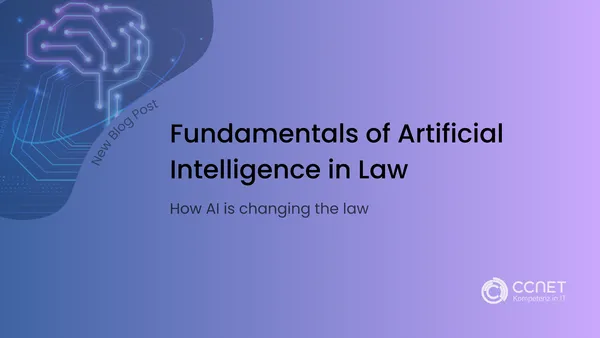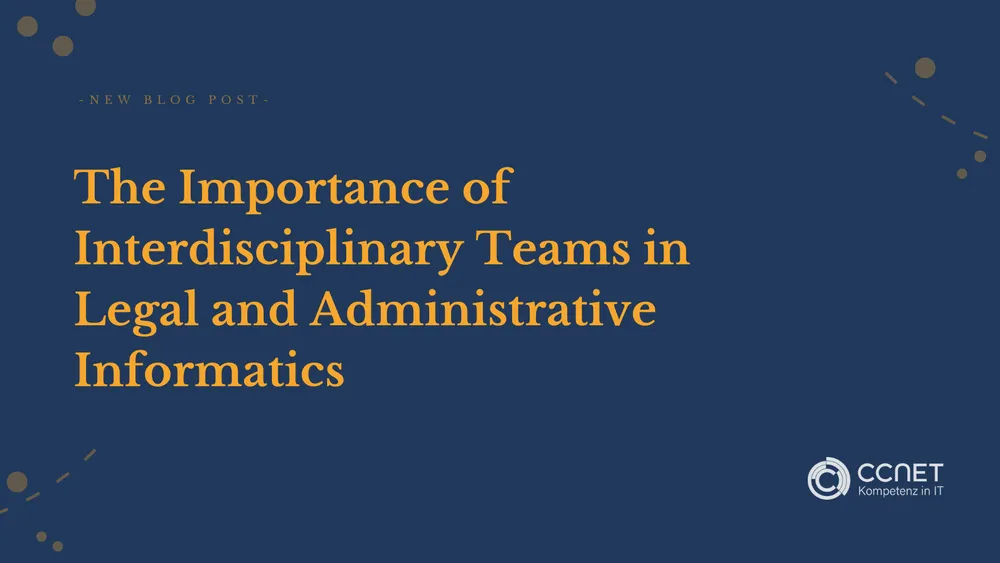
CCNet
Jun 28, 2024 • 2 min read

Fundamentals of Artificial Intelligence in Law
Artificial Intelligence (AI) in the legal domain is an emerging field with the potential to fundamentally transform the way legal services are delivered. In this blog post, we explore in detail how AI is being used in legal practice, from automated contract analysis to the prediction of court rulings, and what implications this has for the practice of law and the future development of the legal system.
AI in Legal Practice
The early projects in legal informatics utilized rule-based AI approaches to formalize individual steps in the decision-making process. These systems, which largely involve human formalization of legal concepts and the development of "if-then" rules, aimed to make certain legal norms machine-readable. Despite these advancements, these approaches never led to full automation of laws, but primarily supported legal practitioners in the form of assistance systems. The implementation of these systems was a significant step towards efficiency and accuracy, but human interpretation and review of legal issues remained essential.
Development and Application of Machine-Learning AI Systems
Modern AI applications in law increasingly rely on machine learning (ML). These systems learn from large volumes of historical data, identifying patterns and correlations relevant to legal decisions. A significant example is the LexMachina system, which uses data from over 100,000 cases to predict the likelihood of a successful legal outcome based on metadata such as the involved parties and judges. These advanced machine-learning algorithms can better understand complex relationships and make more accurate predictions, driving the applicability of AI in the legal domain.
Benefits and Challenges of AI in Law
The use of AI in legal practice offers numerous benefits, including increased efficiency and more precise predictions. However, the use of AI also poses challenges, particularly regarding the transparency and explainability of decisions. As AI systems often function as "black boxes," this is a significant legal and ethical issue. It is crucial to find ways to improve transparency and build public trust.
Legal Framework
The integration of AI into the legal domain also requires adapting the legal framework to ensure that the use of AI technologies complies with legal requirements while ensuring the rights and protection of citizens. Key considerations include data protection, liability for incorrect decisions made by AI systems, transparency of decision-making processes, and the need to ensure that decisions remain judicially reviewable and meet all legal requirements.
Conclusion
Artificial Intelligence is transforming the legal domain in unprecedented ways. While the technology has the potential to revolutionize legal processes, the fundamentals of the legal and ethical implications must be carefully considered. The future of AI in law largely depends on how these challenges are addressed and how the legal frameworks are changing. It is crucial that both legislators and legal professionals actively engage with these issues and develop appropriate guidelines and standards to ensure that AI's use in the legal domain is ethically acceptable and legally robust. Only then can the full potential of this technology be harnessed in the service of justice.
Prepare for more discussions and analyses that will delve into the deeper technical and legal aspects of AI in law.


